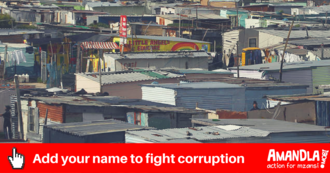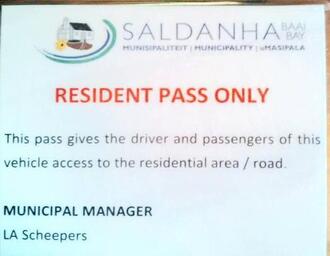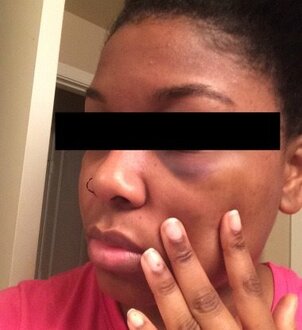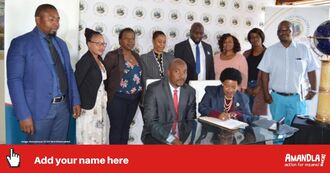- Featured
- Clean air
- Climate justice
- Consumer Rights
- Corporate Accountability
- Data access
- Early Childhood Development
- Economic fairness
- Education
- Electoral fairness
- Environmental justice
- Food justice
- Gender based violence
- Grants/social assistance
- Health
- Housing and infrastructure
- Industry interference
- Land Justice
- LGBTQIA+ rights
- Media/ information access
- Public transport
- Racism
- Reparations
- Safety
- Sanitation
- Service Delivery
- Sexual and Reproductive Rights
- Social justice
- Unemployment
- Womxn's rights/ gender equality
- Workers' rights
- More
-
Tell Parliament to support the tax on sugary drinksSugary drinks are one of the most significant contributors to health problems such as diabetes, obesity, heart diseases, certain cancers and dental decay in the world and in South Africa. Last year, the Minister of Finance announced a plan to tax sugary drinks such as soft drinks, energy drinks, fruit drinks and sweetened milks by April 2017. (Pure fruit juice and milk will be excluded from the tax.) The Parliamentary committees discussing this issue are under pressure to drop this proposal, lower the tax rate, and exempt more products. Beverage companies and retail groups are flooding Parliament with comments to prevent this policy, urging exemptions and weaker regulation. That’s why Parliament needs to hear from YOU to make sure the final policy is strong and effective in lowering the consumption of harmful sugars in beverages. South Africa is already ranked the most obese country in sub-Saharan Africa. Excess sugar consumption is a major cause of obesity and its related diseases, as excessive sugar intake causes increased risk of diabetes, liver and kidney damage, heart disease, some cancers and dental caries. The World Health Organisation (WHO) and the World Cancer Research Fund recommend that people should consume no more than 10% of total calories from sugar. Sugary drink consumption is also linked to under-nutrition. In many African countries, including South Africa, babies are given sugary drinks as a weaning food or even as a substitute for infant formula, which increases under-nutrition and stunting. Stunted infants have a much greater risk of becoming obese and diabetic.197 of 200 SignaturesCreated by Concerned citizens

-
The national art gallery must respect women's livesThe art exhibition Our Lady, currently on show at the Iziko South African National Gallery in Cape Town (and intended to be shown until June 2017) was conceived, according to the gallery, to “interrupt the typical traditional moral attitudes and male dominated stereotypes that surrounds imagery of the female form”. It contained works from the gallery’s public collection and also from the private collection of The New Church Museum. However, as soon as the exhibition opened it was met with outrage. Despite three (white) women having co-curated Our Lady, it is impossible to overlook the fact that 75% of the artists on show are men (the majority of which represent women through the staid conventional lens of patriarchy and are dead white men). South Africa has no shortage of artists who critically reflect on gender in their practice. Instead, the perspectives of women, trans and non-binary artists are heinously under-represented. Of the 27 artists on show, a mere seven are women. Considerably more shocking is the fact that only three black women were represented. Given the history and present of our country, we cannot accept how disastrously short the exhibition falls, particularly in terms of creating space for artistic statements from a wider and richer range of identities that reflects the lived reality of South Africa. Furthermore, many are outraged by the curators’ decision to include the work of Zwelethu Mthethwa, who is currently being tried for the violent murder of Nokuphila Kumalo. Though he will remain innocent until proven guilty, the worth and memory of Ms Kumalo are brutally undermined by the curators’ decision to showcase a work by her alleged murderer. Adding insult, the chosen work by Mthethwa is a portrait of a black woman, who the artist chooses to treat as anonymous. The inclusion of a photograph of an unnamed black woman by Mthethwa reiterates a dominant tendency in our culture; that is, the propensity to view the most precarious in our society – including black sex workers such as Ms Kumalo – as faceless, nameless and disposable nonentities. It tacitly participates in the broader erasure of the voices of black women from our national narrative – and in our national gallery at that. The impassive attitude that this exhibition expresses towards Ms Kumalo (as well as towards those who loved her and continue to mourn her), mirrors the tragically low esteem in which black women have been – and continue to be – held in South Africa today. For all of these reasons, we stand in solidarity with SWEAT – the Sex Worker Education and Advocacy Taskforce – who have strongly condemned the gallery for its decision to include Mthethwa’s artwork. As Ishtar Lakhani of SWEAT has said, “The irony of promoting the work of a man accused of murdering a woman as part of an exhibition aimed at empowering women, is not wasted on us.” Just ahead of a public meeting about these issues The New Church Museum withdrew all of its work from the show, without offering an explanation. We believe that the public has a right to understand why a private collection has elected to silently withdraw a series of loaned works that had been committed to an exhibition in a national institution until June 2017. Public institutions should not be playgrounds for private interests. Many strong voices resonated during the intense public meeting that was hosted at the gallery on 15 December 2016. In addition to public statements made by representatives of the gallery and the New Church Museum, an open letter that was signed by all of the (living) women artists represented on Our Lady was read aloud. This collective letter demanded that all works made by its signatories be immediately withdrawn from Our Lady, as a gesture of protest against the exhibition. We were heartened by the hasty response of the National Gallery, in the form of a media statement that acknowledges that it is crucial for public institutions to remain flexible and responsive to their constituencies. The statement articulates the National Gallery’s commitment to continuing the important conversation around Our Lady, and its sincere intention to reconfigure the exhibition in the early days of January 2017. We embrace this positive momentum and continue to believe that it is possible to radically transform Our Lady to address the rampant violence that is directed against women and others who are marginalised in our culture can be compellingly communicated. However, the gallery has not clearly indicated in the exhibition space why there are so many white walls missing work and why there has been a public outcry around the show’s curation and the inclusion of work by Mthethwa. A powerful debate languishes at the skirts of Our Lady. Due to the current state of the exhibition, this debate remains inaccessible to most museum visitors. As the National Gallery decides on the curatorial steps that it will take in order to render the ongoing debate accessible to the broader public, we ask the institution to make bold decisions that will allow the voices of the protesting artists and activists to resonate accessibly and meaningfully in the public space that the exhibition occupies. We view the Iziko South African National Gallery as an ally and a partner, but also as an institution that is charged with the weighty responsibility of attending to and redressing the radical social inequity that continues to characterise South African society. In memory of Nokuphila Kumalo, for women artists, and for all women who have been and continue to be nonchalantly erased from taking a rightful seat at the table, we ask the National Gallery to move swiftly to radically reconfigure Our Lady so as to bring the ongoing debate that it has unleashed to voice.217 of 300 SignaturesCreated by In Memory of Nokuphila Kumalo In Memory of Nokuphila Kumalo
-
Declare OR TAMBO hailstorm affected areas as distaster areasOn Monday the 2nd of January 2017, a number of areas including the Qweqwe, Payne, Zimbane, Maqhinebeni, VIdgiesville, Mqanduli and the surrounding areas were hit by a severe hailstorm which left many desitute and homeless [1]. Homes, schools and churches were severely damaged and a number of people were rushed to hospital with injuries. During this time of the year this kind of weather uis expected and it is deeply worrying that everytime our Municipality is caught off guard with no contingency plan. We know that it is norm for Disaster Management to delay responding to these disasters even though they have a set budget for such. This is evident even in this case, there has not been any statement issued to declare or any information to give guidance to the affected communities like a toll free number or contact offices/persons We however, commend the Department of Health for being visible and issuing a media statement going as far as offering assistance to those injured. [1] Lightining strikes Seven people in Mthatha, Jenni Evans, News24196 of 200 SignaturesCreated by Fungiwe Ntleki
-
Unpaid Employees of the Bantustan of Bophuthatswana: SEBO Provident and Pension FundsIf our parents are robbed of their hard earned, blood sweat contribution to this administrators, then most children will loose their inheritance for education and livelihood. Remember this is not a grant but monies contributed by this employees, it is a day robbery of everything they would ever have to change the economy of their lives.2,636 of 3,000 SignaturesCreated by Melchisedec Shalom
-
Fight corruption, demand transparent service delivery in [put the name of your municipality here]We can improve service delivery and fight corruption in our Municipality by ensuring all Service Delivery Agreements (SDAs) are public and easily accessible to all. Some politicians, officials and businesses are scared about transparency, but if they aren't doing anything wrong, what have they got to hide. * This campaign by amandla.mobi is supported by Heinrich Böll Stiftung.10 of 100 SignaturesCreated by Vusi Sodiye
-
Tell the Saldanha Bay Municipality to stop violating human rightsThis is a violation of human rights and reminiscent of the apartheid government's issuing of dompasses. The Saldanha Bay Municipality should be working to make public spaces more accessible to poor and low-income families, not reinforcing spacial divisions along racial and class lines.94 of 100 SignaturesCreated by amandla.mobi member

-
You are Not AloneEveryone tends to overlook the amount of pain someone goes through while dealing with an emotionally and verbally abusive relationship. It starts off so innocent, little remarks, about the things that you wear, or the guys you talk to, or even where you sit. You just chalk it up to your significant other being jealous, or whatever the case may be. But eventually things start to develop into patterns. You're making more and more excuses for this person, you go to your friends bawling your eyes out, and they tell you that you're right while your significant other is screaming at you that you're so wrong.4 of 100 SignaturesCreated by Ronaldo Putlane

-
Fight corruption, demand transparent service delivery in uMdoni Local Municipality in KwaZulu-NatalWe can improve service delivery and fight corruption in our Municipality by ensuring all Service Delivery Agreements (SDAs) are public and easily accessible to all. Some politicians, officials and businesses are scared about transparency, but if they aren't doing anything wrong, what have they got to hide.4 of 100 SignaturesCreated by Surayya Ebrahim
-
Fight corruption, demand transparent service delivery in Mamusa Local MunicipalityWe can improve service delivery and fight corruption in our Municipality by ensuring all Service Delivery Agreements (SDAs) are public and easily accessible to all. Some politicians, officials and businesses are scared about transparency, but if they aren't doing anything wrong, what have they got to hide. * This campaign by amandla.mobi is supported by Heinrich Böll Stiftung.4 of 100 SignaturesCreated by Itumeleng molebalwa
-
Fight corruption, demand transparent service delivery in Govan Mbeki MunicipalityWe can improve service delivery and fight corruption in our Municipality by ensuring all Service Delivery Agreements (SDAs) are public and easily accessible to all. Some politicians, officials and businesses are scared about transparency, but if they aren't doing anything wrong, what have they got to hide. * This campaign by amandla.mobi is supported by Heinrich Böll Stiftung.100 of 200 SignaturesCreated by Thulile Motha
-
Fight corruption, demand transparent service delivery in Bojanala Platinum District MunicipalityWe can improve service delivery and fight corruption in our Municipality by ensuring all Service Delivery Agreements (SDAs) are public and easily accessible to all. Some politicians, officials and businesses are scared about transparency, but if they aren't doing anything wrong, what have they got to hide. * This campaign by amandla.mobi is supported by Heinrich Böll Stiftung.6 of 100 SignaturesCreated by Tshiamo Sehunoe
-
Fight corruption, demand transparent service delivery in Msukaligwa Local MunicipalityWe can improve service delivery and fight corruption in our Municipality by ensuring all Service Delivery Agreements (SDAs) are public and easily accessible to all. Some politicians, officials and businesses are scared about transparency, but if they aren't doing anything wrong, what have they got to hide.4 of 100 SignaturesCreated by Bonginkosi Lucky Duba
.png)
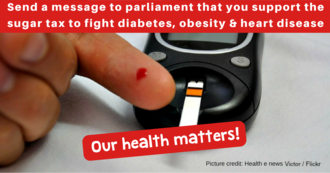
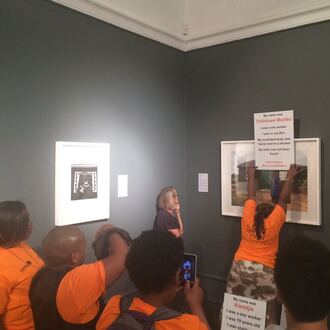

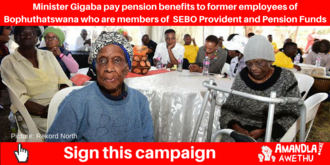.png)
